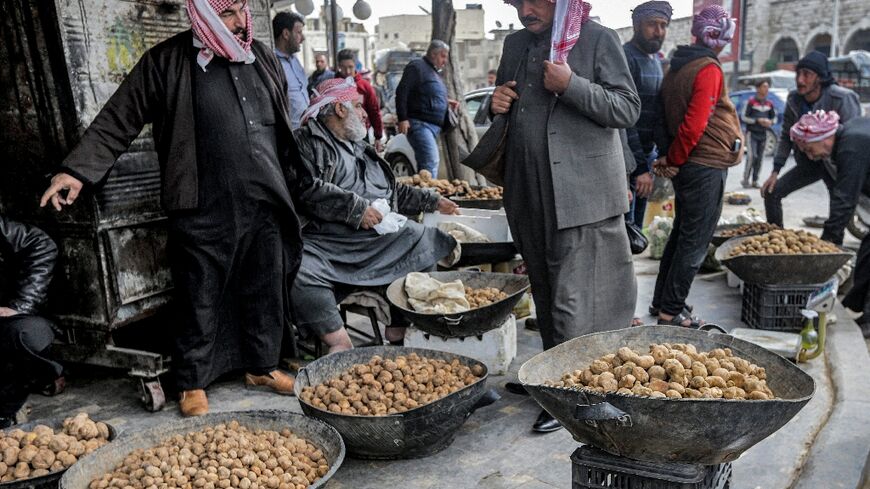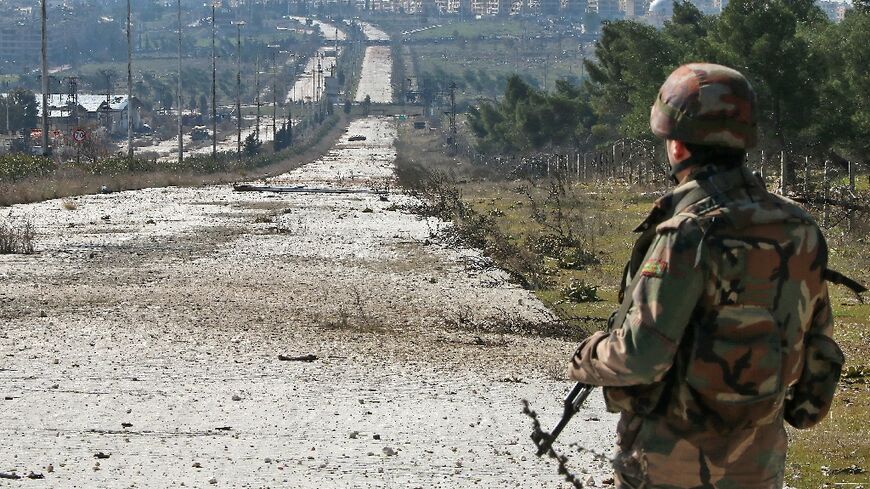Syria attacks blamed on IS kill at least 41

Suspected Islamic State group fighters killed at least 36 truffle hunters and five shepherds in Syria on Sunday, a monitor said, in the latest attacks by jihadists in the war-ravaged country.
Rami Abdel Rahman of the Britain-based Syrian Observatory for Human Rights told AFP the jihadist group "killed 36 people on Sunday while they were collecting truffles in the desert east of (the central city) Hama".
He said 17 of the dead were pro-regime fighters.
The official Syrian news agency SANA reported the deaths of at least 26 people.
The Observatory, which has a wide network of sources on the ground in Syria, said jihadists riding motorbikes also attacked a group of shepherds in the eastern province of Deir Ezzor, killing five and seizing their livestock.
Two other shepherds were kidnapped, the war monitor said.
SANA also reported five dead in the attack, and said the jihadists opened fire on the animals, killing 250 sheep.
Also in Deir Ezzor, the decomposed bodies of two civilians thought to have been truffle hunters killed days earlier by jihadists were recovered, the Observatory said.
Since February, more than 240 people have been killed in IS attacks targeting truffle hunters or by landmines left by the extremists, according to the Observatory.
The victims included 15 people foraging for truffles who had their throats slit by IS last month.
In February, IS fighters on motorcycles opened fire on truffle hunters and killed at least 68 people, the Observatory said at the time.
Syria's desert truffles fetch high prices in a state battered by 12 years of war and a crushing economic crisis.
However, the authorities frequently warn against the high-risk practice of gathering them.
Between February and April each year, hundreds of impoverished Syrians still search for truffles in the vast Syrian desert, or Badia -- a known hideout for jihadists that is also littered with landmines.
- Jihadist remnants -
Syrian truffles are less fragrant than truffles found in France and Italy, and can only be found during the rainy season.
The prized fungus can sell for up to $25 per kilo (2.2 pounds) depending on size and grade -- in a country where the average monthly wage is around $18.
In March 2019, IS lost its last scraps of territory in Syria following a military campaign backed by a US-led coalition, but jihadist remnants continue to hide in the desert and launch deadly attacks.
They have used such hideouts to ambush civilians, Kurdish-led forces, Syrian government troops and pro-Iranian fighters, while also mounting attacks in neighbouring Iraq.
Syria's war has claimed the lives of around half a million people and displaced millions since it erupted in March 2011 with the brutal repression of anti-government protests.
Remnants of explosives laid by all sides in the conflict are now claiming more lives in Syria than anywhere else in the world, says the United Nations.
Since 2015, landmines and other explosive remnants have on average killed or injured five people every day, according to UN data.






